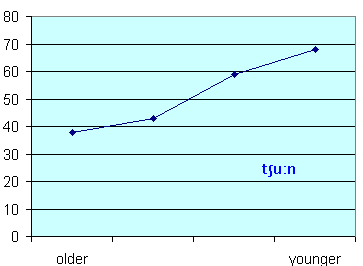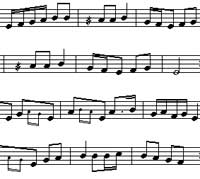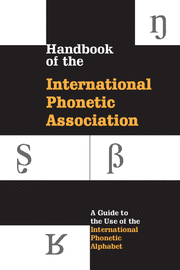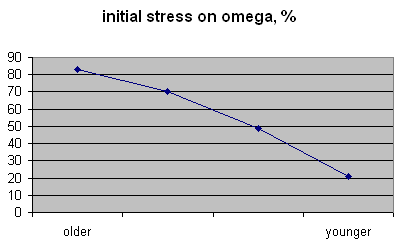DEPARTMENT OF SPEECH, HEARING & PHONETIC SCIENCES UCL Division of Psychology & Language Sciences |
 |
John Wells’s phonetic blog
|
|
| Tuesday 31 July 2007 | CraicI had always supposed that the word craic, meaning something like “fun and enjoyment accompanied by drinking and music”, was an Irish Gaelic word. It is a word you see in publicity for Irish-themed pubs and bars, not to mention the London Irish rugger club. The lower of the two pictures alongside is a sign outside a truly Irish pub in Dublin. As you can see, it advertises ceóil agus craic (music and craic). Mícheál Ó Siadhail’s textbook Learning Irish lists craic in the Irish-English vocabulary at the end, glossing it “fun, ‘gas’, a laugh and a chat”. The word is introduced in lesson 13, where its pronunciation is given as [kra:kʲ]. The long vowel is unexpected, given the spelling (a not á: an acute accent in Irish indicates a long vowel, its absence normally a short one). So it comes as something of a surprise to discover that craic is not an indigenous Irish word at all. It is a loanword from English crack, with a northern English or Scottish dialectal meaning. According to the interesting and apparently well-founded article in Wikipedia, it was borrowed, probably in the 1960s or 1970s, into the Irish language with a Gaelicized spelling ('craic') [...] 'Craic' was also used on Irish-language hand-lettered signs displayed outside many pubs, and subsequently the Irish spelling was reborrowed for English-language signs and publications. Until the late 1980s, this spelling was unknown in English. The reason for the letter i in the spelling is, I think, as follows. Irish Gaelic consonants fall into two classes, ‘slender’ (palatalized) and ‘broad’ (non-palatalized). In the spelling, slender consonants are shown by an adjacent letter i or e. Before a slender consonant, /a/ is front; before a broad one, it is back. English /æ/ maps onto the first allophone, English /ɒ/ onto the second. So the /æ/ of crack requires that the following consonant be slender consonant. Correspondingly, the spelling must have an i. Ó Siadhail’s claim that the vowel is long is either a mistake or a mystery. The English pronunciation, after this two-way borrowing, remains /kræk/. |
|
| Monday 30 July 2007 | Pleased to become an apfelstrudelNot a matter of phonetics, but here is a delightful EFL false-friend error I came across on the internet, in a customer review of an airline. | |
| ||
The flight was from Vienna (VIE) to Stockholm (ARN). It is not clear whether the reviewer is Swedish-speaking or German-speaking; but both Swedish bekomma and German bekommen mean ‘to receive, to get, to be given’. Unfortunately, English become doesn’t. * * * His Excellency the new Governor of Montserrat, in his inaugural address to the Legislative Council, used the expression “an [ˈɪntrɪgəl] part”. In LPD I give this mispronunciation of integral a warning triangle, I think rightly. I feel disappointed in our British diplomatic corps. I was able to observe his pronunciation directly, because you can listen to the Montserrat local radio on-line. |
| |
| Friday 27 July 2007 | Problems with lexical stressIt is sometimes difficult to decide how to mark word stress in a dictionary. A dictionary should ideally show lexical stress, i.e. the stress pattern that the word has when spoken in isolation with no special pragmatic factors in play (no special contrastive stress, for example). You can usually check this by making the word a one-word utterance, as an answer to a question such as What’s that?, What’s it like?, What did he do?, How did he do it?. There’s a particular difficulty with compound adjectives such as God-given, hard-drinking, long-term, sabre-toothed. Lexically it is probably correct to show them all with double stress (end-stress), so ˌGod-ˈgiven, ˌhard-ˈdrinking, ˌlong-ˈterm, ˌsabre-ˈtoothed. The trouble is that all double-stressed words are candidates for stress shift. And adjectives like these are usually attributive: they precede a noun, itself likely to be stressed, so that in practice they undergo stress shift much more often than not. our 'God-given 'rights It may feel slightly awkward to force them into predicative position: What sort of rights are these? — God-given. If we do this, however, I think it becomes clear that they are indeed double-stressed. What sort of rights are these? — 'God-'given. If we answered the last question by saying —'Sabre-toothed. then we would implicitly be contrasting sabre- with some other kind of toothedness. But sometimes this kind of contrastiveness becomes fossilized, as in pear-shaped, so that initial stress is the only possibility. It’s 'all gone 'pear-shaped. There is also a problem in deciding whether to show words such as one-size-fits-all or MRSA with four stresses or (as they are usually pronounced) just with two; and likewise whether to show three or two lexical stresses in words such as nondenominational. |
|
| Thursday 26 July 2007 | Slope ... poster!My paper for the forthcoming ICPhS in Saarbrücken was accepted not for oral presentation but as a poster, which means that I have to prepare a physical poster to affix to a display board. Yesterday I collected it from the printers. It is size A0. That means that the length of the shorter side is 841mm, which makes it quite awkward to carry in its carrying tube. Experimenting with different ways of carrying it as I made my way home on foot, I suddenly realized that I know how to carry a long thin object of that size. You have to treat it like a rifle. I am not quite old enough to have had to do national (military) service, but I did have to attend ‘corps’ (CCF) at school, which involved learning basic military drill, including rifle drill. From fifty years ago I recalled how to present arms, to order arms, and — the one I needed — to slope arms. That is the position in which one carries a rifle (or in this case a poster) when marching along (or in this case walking along). So in ten days’ time you may see me walking through Saarbrücken Hauptbahnhof or the Universität des Saarlandes campus with my poster in the slope position. |
|
| Wednesday 25 July 2007 | We all like a good choonIn his blog for 28 June, Jack Windsor Lewis, discussing my recent pronunciation questionnaire, ventures the opinion that for tune in /tjuːn/ versus /tʃuːn/... ...the Wells respondents surely won't prefer /tʃ/. I have news for you, Jack. My respondents, numbering about a thousand, voted for /tʃ/ over /tj/ by a margin of 54% to 44% (with 2% for bare /t/). Only among the over-45s was the traditional /tj/ preferred, and then by a fairly small margin. Of the under-26s, over two-thirds voted for the affricate. Here’s the graph:
This is in line with the 46% reported by Hannisdal for RP-speaking newsreaders (blog, 26 April). She was investigating performance, not preference: but the figures are much the same. |
|
| Tuesday 24 July 2007 | Accents change over time shock horrorYesterday’s Times newspaper carries a story about the supposed disappearance of middle-class speech in England. Where are the gels who can talk proper and pirouette? Notice anything odd here? First, there is the headline. The spelling gels alludes to an obsolete upper-class pronunciation of girls (/gelz/ or perhaps /geəlz/ for /gɜːlz/) which is surely not relevant to the task of casting child actors to play parts requiring the middle-class accents of the 1930s. It is like the supposed demise of U-RP (blog, 11 July). In my view, middle-class children today speak with middle-class accents. If the British social class system persists (and it does, though much less sharply stratified than was the case a hundred years ago), then by definition middle-class accents are what the middle classes continue to speak with. Middle-class and working-class accents have certainly converged over the last half-century, but accent differences haven’t disappeared. That middle-class accents have changed over time need not surprise anyone: language does change. Rare indeed are children who speak like their grandparents or greatgrandparents. |
|
|
What the producers are really looking for is child actors who can speak with a particular historical accent. It is like casting a play in which the actors must speak with Victorian, or indeed Shakespearian, accents. People usually can’t do it without training. Unless you are particularly talented in that direction and can do it on your own, you have to study. You must go to drama tuition, elocution lessons, or even, dare one say it, phonetics classes. Many of you will have seen the film and musical Billy Elliot. The crucial dramatic point here is that Billy is a working-class child driven by his love for ballet to mix in a middle-class world — in today’s middle-class world, in which adults and children speak with (contemporary) middle-class accents. | ||
| Monday 23 July 2007 | More on Swedish sjIn response to Friday’s posting, Olle Kjellin, author of several books on teaching Swedish pronunciation to foreigners, writes helpfully as follows. Your description of our labio-velar 'sj' sound is a very good one. The book you mention is probably Per Lindblad's thesis [Yes. Lindblad, P. 1980. Svenskans sje- och tje-ljud i ett allmänfonetiskt perspektiv — JCW]. Whistling the lowest note one can is also a good way of achieving cardinal 8 [u]. |
|
| Friday 20 July 2007 | The Swedish sj soundNigel Greenwood writes: My Routledge Swedish Dictionary (actually a reprint of Bokförlaget Prisma's dictionary, and printed and bound in Norway, of all places) adopts a rather defeatist attitude when it comes to describing the distinctive Swedish consonant [ɧ] in the Pronunciation section:Similar to sh in she ... (Most Swedes use a different sound, which is, however, difficult for foreigners to produce).Don't you think (he asks) they might have improved on this cryptic and unhelpful parenthesis? In its section on Swedish (p. 140) the IPA Handbook calls [ɧ] a ‘voiceless dorso-palatal/velar fricative’. In the list of symbols (p. 167), it gives the phonetic value of “hooktop heng” slightly differently, as ‘simultaneous voiceless postalveolar and velar fricative’. To this I would add that in my experience this articulation is often accompanied by lip protrusion. The overall effect is of a voiceless fricative with no very determinate place of articulation but rather a long channel constriction. My advice to non-Swedes would be to start with a velar fricative [x], add a simultaneous darkish [ʃ], and protrude and open-round the lips. First listen, and then practise saying [ɧʉ] sju, which means ‘seven’. I used to have an entire book (in Swedish) devoted to this sj-ljud. But I probably gave it away when I cleared out my room at UCL: I can’t find it now, anyhow, and I can’t even remember the author’s name. I do remember, though, that he describes two different variants of this sound. And that’s not counting the retroflex [ʂ] that a few speakers use instead (and which of course most speakers use in words spelt rs). Perhaps a Swedish-speaking reader can give some better and more authentic advice. On Nigel’s general point, though, I agree. The level of phonetic sophistication in dictionaries (and indeed in language-learning materials in general) is often disgracefully low. | [ɧ]
|
| Thursday 19 July 2007 | Co-chairing airlinesThere I am, dozing in my seat on the plane before landing, when I hear the voice over the public address system say ...hope you will fly again with us or one of our co-chair partners... What?! No, this is a mondegreen (blog, 6 Sep 2006). What the voice actually said was ...hope you will fly again with us or one of our code-share partners... The difference in pronunciation, if any, is very subtle. In code-share /ˈkəʊd ʃeə/ the /d/ gets devoiced before a voiceless obstruent. A devoiced [d] sounds very like an unaspirated [t], the first part of the affricate [tʃ] of co-chair /ˈkəʊ tʃeə/. Theoretically, the difference between them is that one is lenis and the other fortis. There is no helpful difference in the duration of /əʊ/ through pre-fortis clipping, as in coat vs. code, because the fortis /tʃ/ of co-chair is in a different syllable (different morpheme) from the diphthong. |
|
|
In the heyday of structuralism, the 1960s, pairs like this were known as juncture pairs. One of my favourites is Is the ship a tanker? But here there is a big allophonic difference between the two /t/s. The first is strongly aspirated, while the second is not, and may indeed be glottal (BrE) or voiced. |
| |
| Wednesday 18 July 2007 | English spellingThree days ago in the Sunday Times Rod Liddle poked fun at those who argue for putting some order into the mess that is English spelling. Ennywun hurd of tha simpleefyd speling sosiutee? Its an orgunizashun dedeecayted to speling wurds fonetiklee, to mayk lyf eezia for yung peepul lurning to reed and for thoz who hav daily sex. I meen dyslexia. Or dislekseea. Woteva... But this is a serious issue that demands serious discussion. Surely there’s something wrong when even many university students confuse of and off, your and you’re, its and it’s, their, there and they’re (and believe me, they do — and I’m referring to native speakers, not EFL learners). The Birmingham University Titania website, which hosts the vaunted Bank of English (the corpus behind the Collins dictionaries), is currently apologizing for a ‘security laps’ (sic). Think about it. Why do we insist on an arbitrary letter e at the end of lapse? Or for that matter of love and twelve? Think of the teacher teaching reading in a primary school. He or she explains the “magic e” that makes fate different from fat, ripe from rip, cute from cut. A bright child immediately notices the everyday words have and give. Why does their magic e not work? The teacher has no answer. That’s just the way things are. The bright child takes this in his stride. The slower child is simply confused and disheartened. It isn’t as though the e was doing something useful in those words, as it does when it distinguishes hope from hop. Given their spelling, you’d expect have to rhyme with grave and give with drive. If English had a rational spelling, or at least one with the worst anomalies removed, people wouldn’t have to lay themselves open to embarrassing ridicule because of failure to memorize all the arbitrary oddities of our spelling. I’m glad to say that the BBC website is currently hosting an intelligent discussion on the subject, between Masha Bell, author of Understanding English Spelling, for the Simplified Spelling Society, and Prof. Vivien Cook of Newcastle University, author of Accomodating Brocolli in the Cemetary (sic). Join in! |
|
| Tuesday 17 July 2007 | Greek and LatinNigel Greenwood points out, correctly, that in Modern Greek omega (see yesterday’s blog) is stressed on the penultimate. On the other hand omicron, which in English when I was at school was /əʊˈmaɪkrɒn/, stressed on the penultimate, has initial stress in Modern Greek. In case you hadn’t realized, in Greek omega is literally ‘big o’ and omicron is literally ‘small o’. These two letters stood for two different vowels in Classical Greek, long o and short o. (Putting it like that involves a certain minor distortion of the facts, but it’ll do for now.) But the trouble is, as I think I’ve pointed out before, that Greek words taken into English normally pass through Latin and so become subject to the Latin stress rule (= place the stress on the penultimate syllable if it is heavy, otherwise on the antepenultimate. A heavy syllable is one that has long vowel, or a short vowel followed by a consonant cluster.) Because the /e/ in mega is short, the syllable is light, so the Latin stress goes on the antepenultimate, i.e. 'omega. On the other hand the /i/ of Classical Greek micron is long (cf. microphone etc.). So that syllable is heavy, and in Latin therefore receives the stress: o'micron. That’s the Latin stress rule. But in Classical Greek itself the rules for stress (and tone) were quite different. The names omega and omicron date only from the Byzantine period, when the length distinction had been lost, so that καλῶς, formerly kalōs, and καλός kalos had become identical in sound. That made it necessary to disambiguate the vowel names, which is why the adjectives mega and mikron were added. It is not clear to me why they ended up with the Modern Greek stress patterns o'mega, 'omikron. On the face of it, you would expect omikron to have final stress (since on their own these adjectives are μέγα méga, μικρόν mikrón). Can anyone explain? Anyhow, this means we could say that by abandoning initial stress on omega young people are reverting to the stress pattern of Byzantine Greek, overturning the influence of Latin. | οω ΟΩ ὂὦ |
| Monday 16 July 2007 | OmegaThanks to everyone who took part in the 2007 LPD pronunciation preference survey. It closed at the end of June, having run since mid-May. The results have now come in. I’ll release some of them here bit by bit. But for most of them you’ll have to wait for formal publication. As far as omega is concerned (blog, 5 Feb 2007), it confirms what I suspected. A bare majority (52%) prefer the traditional initial stressing /ˈəʊmɪgə/; but when we break the figures down by age we find that this form is preferred by 83% of the over-65s, 70% of those between 45 and 65, 49% of those aged between 26 and 45, and only 21% of those aged 25 or under.
Although the younger people are going for penultimate stressing, they can’t agree on the vowel quality of the penultimate syllable. In order of preference, their choices are /-ˈmiːg-/, /-ˈmeg-/ and /-ˈmeɪg-/. | Ω ω |
Archived from previous months:
To search my web pages, use this Google search.
my home page


















